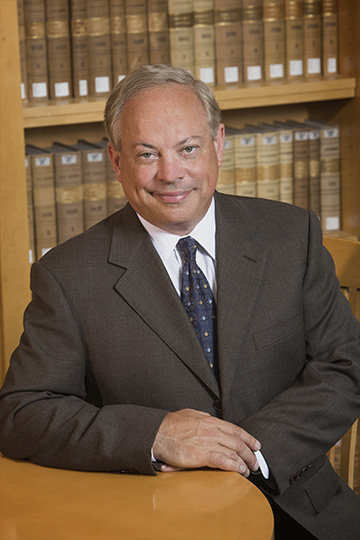
Professor Jack Beard spoke on "Countering Adversaries: Foreign Manipulation in Media and Politics,” at an event sponsored by the University of Nebraska Intelligence Community Scholars Program. At the Annual Advanced International Operational Law Conference at the U.S. Strategic Command, he presented “Modernizing the U.S. Nuclear Force and Nuclear Non-Proliferation Responsibilities” and moderated a panel “International Law Applicable to Military Uses of Outer Space.” At the invitation of the University of Adelaide Law School, he instructed classes in Strategic Space Law in Australia this summer and is working on the establishment of collaborative space law programs between the University of Nebraska and the University of Adelaide.
_______________
Professor Jack Beard's recent article, “Soft Law’s Failure on the Horizon: The International Code of Conduct for Outer Space Activities”, has been published by the University of Pennsylvania Journal of International Affairs.
This article examines efforts initiated by the European Union to address key gaps in the legal regime governing outer space through a proposed “International Code of Conduct for Activities in Outer Space.” The draft Code, which continues to debated by the international community, is an example of a legally non-binding "soft law" instrument which also contains broad, indeterminate statements of principles. While soft law has made important contributions to the legal and administrative framework that governs space, the Code does not hold such promise. Instead, this article argues that the Code is a case study in the limitations of soft law, particularly when employed as a mechanism to regulate military activities and weapons in a highly insecure and contested environment like outer space. Moreover, it is notably ill-suited in this context and in its design to successfully address the critical problem of orbital space debris. As a soft law instrument with both soft law’s general limitations and its own particular shortcomings, the Code is an ineffective measure that distracts attention from more meaningful initiatives to reduce orbital debris while at the same time risking increasing tensions in space, diminishing the existing legal framework governing space activities, and negatively affecting the future development of space law.
https://papers.ssrn.com/sol3/papers.cfm?abstract_id=2770898
_______________
Professor Beard was elected Vice Chair of the Space Law Interest Group of the American Society of International Law.
The Space Law Interest Group (SpaceIG) serves as a forum, resource, and community for scholars and practitioners of the international law governing the use and exploration of outer space.